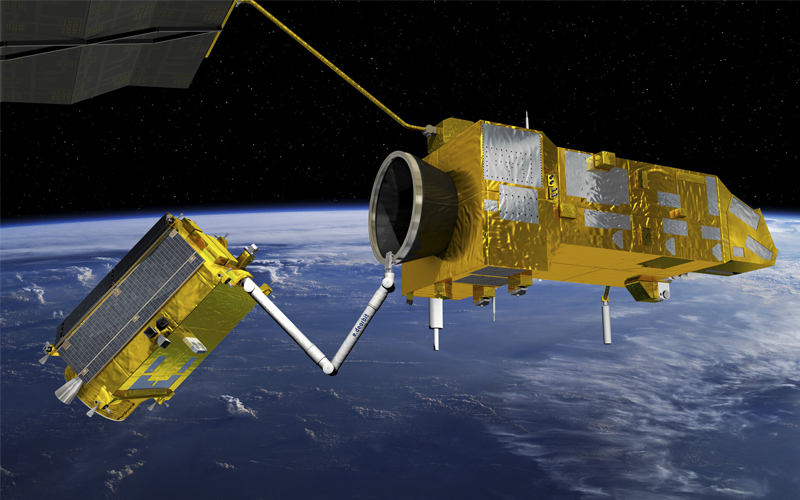
A Thales Alenia Space-led consortium has been awarded a €235 million contract from the Italian space agency (ASI) to design, develop and build an in-orbit servicing demonstration mission. The aim of the mission is to develop critical technologies for future in-orbit servicing vehicles.
The contract is funded through the In-Orbit Economy component of the Italian national covid recovery scheme (PNRR) that is, in turn, funded by the European Union’s NextGenerationEU economic package. In addition to Thales Alenia Space, the companies involved in the project as part of the consortium are Avio, D-Orbit, Leonardo, and Telespazio.
The missions will include two satellites: one service vehicle and one target satellite. Once in orbit, operations will consist of inspection, proximity operations, docking, refueling, control of the target satellite by the service vehicle, and even in-orbit assembly demonstration activities. The contract also includes all necessary related ground control and management services.
Key technologies ASI expects to be developed as a result of the contract include space robotics, artificial intelligence, sensors for proximity operations, guidance, navigation and control systems, propulsion solutions, and accompanying supply chains.
Avio was separately awarded a €55 million contract to develop a multipurpose “green” liquid propellant engine for future in-orbit servicing and space logistics applications. It’s unclear, however, if this engine will be utilized aboard the demonstration mission. The development of the demonstration mission is expected to be completed by 2026. Avio is also expected to complete its engine by 2026, which would mean that timelines would be a little tight.




